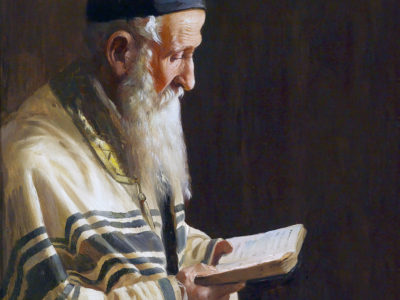LUKE DISAPPOINTED ME. Yeah, I’m talking about the Gospel of Luke.
Lately, I’ve been reading it more carefully than I have in a long time.
I hit a news flash. I discovered that a lot of well-respected Bible experts say that the angel wasn’t talking about me when he told the shepherds he had Good News for “all people” (Luke 2:10).
I’m not included in “all people.”
Neither are you, unless you’re Jewish.
Here’s what the angel said.
“I bring you good news that will bring great joy to all people. The Savior—yes, the Messiah, the Lord—has been born today in Bethlehem, the city of David!” (Luke 2:10-11).
Bible experts say that when Luke wrote the word that is translated “all people,” he used a Greek term that we associate with a Southeast Asian country: laos. It means “people.”
Which is a cool name for a country. People.
But scholars say that whenever Luke uses that word, he’s talking about Jewish people.
Luke set that Jewish context early on in the book he wrote, when he reported Zechariah’s happy song after little John the Baptist got born.
“The God of Israel… redeemed his people. He has sent us a mighty Savior… remembering his sacred covenant – the covenant he swore with an oath to our ancestor Abraham” (Luke 1:68-73).
There’s not a lot of Gentile going on there. Just a lot of Jew.
That surprised me. It bothered me, too. Now, every time I hear the Christmas story, I’m going to remember that the angel was talking to Jews about Jews.
But then, Jesus was a Jew. All of his disciples were Jews. The first members of the Jesus Movement initially called “The Way” and later called “Christianity” were Jews.
Christianity had to start somewhere I guess.
In time, the Jesus Movement grew to include non-Jews. In fact, the man traditionally credited with writing the Gospel of Luke was not a Jew. He was a physician who traveled in the apostle Paul’s entourage.
In the beginning of Luke’s story, I may not have been there. But I’m there now.
So – I hope with Luke’s blessing – I’m going to go ahead and read myself into “all people,” just like I did before I knew any better.
Christmas may have started with Jews.
But somewhere along the way the rest of us got invited to the party:
“Go and make disciples of all nations.”
—Jesus to his Jewish disciples, Matthew 28:19
Check.
For more about Jesus
- Understanding Jesus
- Who’s Who and Where’s Where in the Bible, pages 243-252
- Jesus, a fake human?
- Is Jesus enough for Christmas?
- What Romans said about crucifixion
Blog subscribers who win books this week
- Veronica Brown
- Debbie Reed
I give away free books each week.
Randomly selected subscribers to this free blog or to my free quarterly newsletter get the option of choosing my newest book: A Quick Guided Tour Through the Bible – among about half a dozen other titles.


This is true, but we are told by the Apostle Paul in Galations 3, that the “seed” of Abraham is Christ and that through faith “all the nation’s will be blessed” and counted as part of the “People” of God. This is the “mystery” that Paul talks about that Jew and Gentile would be part of the same Covenant community!
Very good, Wayne.
Stephen,
I was taught by a New Testament professor at seminary that Luke was the most inclusive gospel writer. He included parables that the others gospel writers didn’t include. Being a doctor he had many stories about Jesus healing all type of people from all walks of life. Luke also felt it was important to say Jesus came to save and heal all people, Jews and Gentiles alike. Luke’s best example of this is the parable of “The Good Samaritan”. Who are the true people who follow God? Yes, the Jews, but also the Gentiles. The Samaritan was a Gentile. I think Luke, Jesus (God) were just reminding of the prophetic message (the Book of Jonah) that God loves, heals, and wants to save all of us God has created of earth. So I disagree with you here and I think Luke, a gentile, intentionally wrote good news that will bring great joy to all the people. When Luke wrote this he truly meant Jew and Gentile alike. Besides, if Laos means the people of the Southeast Asia it could still include Jews and Gentiles alike because many people resided in southeast Asia, Samaritans or the people of Nineveh for instance. This time I agree more with Wayne Sacchi then with Stephen M. Miller. I wonder if you wrote this to stir up comments?
Hi, Richard. No, I wasn’t trying to stir up comments. I was reading commentaries, and all 3 of the ones I read said that this word in the Gospel of Luke always refers to Jews and that the context of the story is set among the Jews.
So it surprised me when I read this. And I wanted to pass it along.
It surprised me for the very reason you indicated. Luke himself was a Gentile, Bible experts say.
Even so, the commentators I am reading at the moment indicate that when Luke was telling the story he was starting with the Jewish context. Only later in the Gospel and in his sequel, Acts, did the mission expand to include the Gentiles.
This is not a position I am advocating. I don’t consider myself a Bible scholar. This is a position I’m reporting. So don’t hold me to it. The messenger does not want to get shot. I, too, agree with what our friend Wayne has said.
Peace to you.